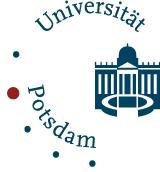Chairs at the School of Jewish Theology
Acting Director of the School:
Chair in Talmud and Rabbinic Literature:
Prof. Dr. Admiel Kosman
Chair in Hebrew Bible and Its Exegesis:
Represented by: Prof. Dr. Idan Dershowitz and Prof. Dr. Rüdiger Liwak
Chair in Jewish Religious and Intellectual History:
Prof. Dr. Jonathan Schorsch
Chair in Philosophy of Jewish Religion, Ancient and Medieval Periods:
Prof. Dr. Daniel Krochmalnik
Chair in Modern Jewish Philosophy, focus on Denominations and Inter-Religious Dialogue:
Chair in Jewish Liturgy and Comparative Ritual Studies:
During the semester represented by:
Visiting Professorship Halakhah:
In the semester visiting professor:
